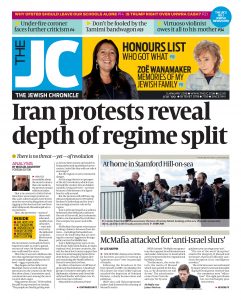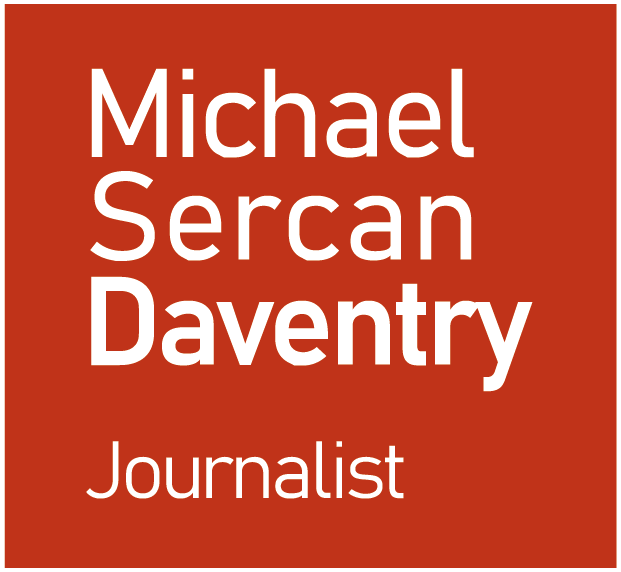 Originally published as a front page splash in the Jewish Chronicle, 5 January 2018
Originally published as a front page splash in the Jewish Chronicle, 5 January 2018
What is remarkable about the unrest in Iran is that, one week on, the protests remain without a leader.
That is in contrast to 2009, the last time there were major protests on this scale, when Iranians were driven onto the streets by allegations of vote rigging in the election that saw President Mahmoud Ahmadinejad win a second term.
Then, the protesters — many of them well-educated, middle-class urbanites — were ushered on by the defeated candidate, Mir-Hossein Mousavi. His movement eventually led Iran’s Supreme Leader to order a partial recount of votes. Mr Ahmadinejad was confirmed the victor.
This time, it was not a dubious election that sparked protests but anger over unpaid wages and the price of food — eggs, in particular.
They began on December 28 in Mashdad, Iran’s second city, and spread across the country as the New Year drew closer. Conservative rural communities were among the most vocal in their anger.
“Big protests in Iran,” US President Donald Trump tweeted on Sunday. “The people are finally getting wise as to how their money and wealth is being stolen and squandered on terrorism. Looks like they will not take it any longer.”
But the regime is not in imminent danger.
At this stage there is no prospect of the 1979 revolution, which transformed the country into an Islamic republic, being reversed — not least because of the absence of a figurehead to rally around.
But the protests will still have significant implications for President Rouhani’s leadership and for Iran’s increasingly assertive role in the region.
Iran is often portrayed as a solitary behemoth that defiantly confronts the rest of the world, but its domestic politics are dominated by rival blocs that compete for power and influence.
Mr Rouhani has spent recent years striking a balance between these factions — including the hawkish sections of the leadership that are steering the country’s aggressive foreign policy across the Middle East.
Iran is fighting proxy wars on several fronts with Saudi Arabia, its main regional rival. In some countries, the war has been hot: Iranian support has been crucial to keeping Syrian President Bashar al-Assad’s regime alive and sustaining the Houthi effort in Yemen’s wretched civil war.
In others, it has been a Cold War of guile and machinations. A Saudi-led group of countries abruptly cut off diplomatic relations and closed the only land border with Qatar over its own close ties to Tehran.
Meanwhile in Lebanon, Prime Minister Saad al-Hariri spectacularly – and, it transpired, abortively – resigned, citing the disruptive effects of Iranian-backed Hezbollah militants in his country.
These foreign adventures have caused fury abroad; they are also at odds with the domestic situation.
Mr Rouhani won re-election in May 2017 in large part because of the international nuclear deal that Mr Trump decries.
The Iranian president had argued that the West’s decision to lift certain economic sanctions would mean increased prosperity for everyone in the country and in many ways he was right: in recent years inflation has been curbed and the economy is growing.
But the protests made it plain that benefits have not trickled down to ordinary Iranians. Corruption is rife and most people turn to the black market for their everyday needs. These are problems that are not going to be solved overnight.
This decade has already shown that when poverty and hunger drive people to desperate acts, they can have enormous consequences: remember Tunisian street vendor Mohamed Bouazizi, who set himself on fire in December 2010 after police confiscated his cart and weighing scales. His death triggered mass protests that led to the downfall of the Tunisian regime – and several others across the Middle East.
The demonstrations’ humble origins are cause for Mr Rouhani to be alarmed.
This helps explain Mr Rouhani’s initial, tempered response to the protests when he said people are “completely free” to criticise the government “in a way that would lead to the improvement of the country’s conditions.”
It also helps explain why “foreign agents” were blamed for stoking the violence, as well as the many reports that Mr Rouhani’s conservative political opponents are supporting the demonstrations.
For all Mr Rouhani’s accusations of outside interference, this is a very domestic uprising.
